for (i = 0; isspace(s[i]); i++) { ... }
The above for loop is the part of the program for converting a string to an integer in K&R on page 61.
There's no condition check in that for loop. How does it work?
for (i = 0; isspace(s[i]); i++) { ... }
The above for loop is the part of the program for converting a string to an integer in K&R on page 61.
There's no condition check in that for loop. How does it work?
The loop terminates whenever the condition expression evaluates to 0. If for instance you see an expression like i < 3, you can think of it as (i < 3) != 0. So in this case, it's isspace(s[i]) != 0 meaning it terminates at the first character that is not a space.
isspace(s[i]) is the condition, since it returns a zero value for 'false' (i.e. the provided character is not a space character), and non-zero values for 'true'. In this case, only one space character exists, but in other functions such as isalpha or isalphanum, non-zero values mean different things like 1 means it is an upper-case letter (so it is an alphabetical character), or 2 means it is a lower-case letter) and so on (I may have mixed those numbers up :/).
In otherwords, the for loop is treating this function as returning a boolean value, like most other expressions, meaning it treats zero-values as false, and non-zero as true.
First of all, you're going to get out of bounds, which is gonna give you a segfault. You're just increasing i, but not checking whether it's still in the bounds or not. For example, what if s would be equal to " "? isspace(i[0]) will return a non-zero value (treated as true) and the loop will continue and will try to access the second (non-existent!) value of s. You'd better add another tiny check: for (i = 0; (i<SIZE_OF_S) && isspace(s[i]); i++) { ... }
Let's now talk about the missing condition. No, it's not missing, it's here: isspace(s[i]). This function checks whether s[i] is considered space or not. It returns a non-zero value if yes, and 0 otherwise (docs). So, it is the missing condition, just in a slightly different form (maybe you're used to different comparisons, but there exist a lot more ways.
Yes If the for loop have without condition checking , the for loop will exit whenever the condition part will be zero
For example
` int i ;
for (i=0; 7-i; i++)
printf("hello world \n");
getch();
return 0;
}`
See the above program the 'i' minus the seven each time . and the loop will exit whenever the value of condition part will be zero (ie 7-7) .